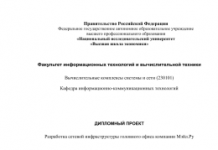The ongoing debate over healthcare in the United States highlights growing anxieties about affordability and access under President Trump’s administration. While a recent government shutdown was averted without immediate action on extending Affordable Care Act subsidies, this political maneuvering has left many questioning its long-term consequences.
Letters to the editor published in The New York Times paint a picture of increasing pressure on Americans already struggling with healthcare costs. Several contributors express fear that skyrocketing premiums will disproportionately harm Republicans who voted for Trump despite his campaign promises of lower overall living costs.
Adam Michels, writing from San Francisco, frames this issue as a strategic misstep by the Republican party. He argues that while avoiding immediate blame for rising healthcare costs may seem like a victory for President Trump, it ultimately sets up GOP lawmakers to bear the brunt of voter anger when premiums inevitably surge further. Michels sees a pattern in Trump’s approach, comparing his solutions for farmers burdened by tariffs and working families facing health insurance costs – simply “paying off” people rather than addressing root causes.
Mateusz Marcinowski, a psychotherapist from Massachusetts, paints an even more dire picture. He warns of a looming “healthcare collapse” where millions could lose coverage altogether, driving up costs even further for those who remain insured. He emphasizes the human cost, noting that families are already forced to choose between paying rent and affording healthcare, a situation he predicts will soon become unsustainable.
L. Rigby’s letter offers a contrasting perspective on the recent political maneuvering surrounding the shutdown, framing Democrats’ decision to prioritize extending health subsidies as an act of “compassion” in response to Trump’s alleged willingness to let vulnerable populations suffer.
This collection of letters underscores the growing tension between rising healthcare costs and public trust in leadership. Whether it will translate into tangible change or contribute to a deeper sense of dissatisfaction remains to be seen.







































